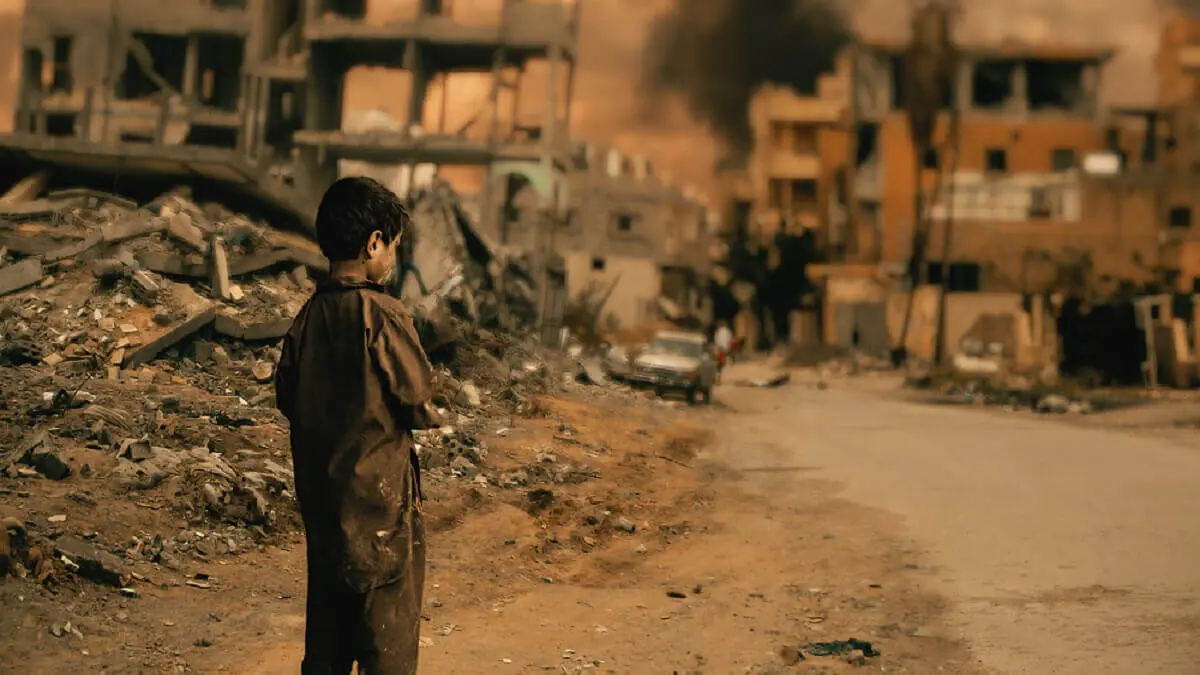Al Jazeera: a poisoned account of the situation in Gaza

The Gaza Strip is going through one of its most agonising moments. Hamas's terrorist attack on 7 October triggered an escalation of violence that has spilled over into neighbouring countries. However, the narrative being constructed by some media in neighbouring states does not reflect the reality, not only of the current situation in Gaza, but also of what the last few years have been like for the population living under the yoke of the Hamas dictatorship, as in the case of the media outlet Al Jazeera, which has led Israel to ban its activity inside Israeli territory.
Opacity about Hamas violence
Al Jazeera, one of the Middle East's leading media outlets, is treating the Gaza crisis with a view that is, to say the least, untrue to reality. The Qatari outlet has long ignored Hamas's aggressions in order to focus on Israel's justified - if utterly disproportionate - response. Indeed, its focus has been on the destruction of Gaza, neglecting the responsibility of those who, once again, have provoked an increase in tension in the region with a terrorist attack.

Observers claim that the real picture of Gaza is far removed from what Al Jazeera portrays. In the months leading up to the Hamas offensive, the Qatari media outlet avoided discussing the conflict, and if it did, it was with an image that experts believe was orchestrated to build a narrative against Israel and its activity in the areas surrounding the strip. And while the Israeli role has been far from helpful to the Gazan population, this narrative provoked a discontent that the US denounced just a week after the Hamas terrorist attack.
Antony Blinken denounces Qatari opacity
US Secretary of State Antony Blinken was quick to denounce Al Jazeera's handling of information. When Blinken visited Doha to meet with Qatari Foreign Minister Mohammed bin Abdulrahman Al Thani, he was keen to defend media transparency, especially in reference to Al Jazeera.

Blinken expressed the US administration's concern about the treatment of reporting on Gaza, which they felt could lead to further escalation of violence. He also called on the Qataris themselves to change their position on Hamas as they considered their stance against Israel too "severe", especially when it was in favour of an organisation considered by Washington to be a terrorist organisation.
Moreover, sources consulted by Al Arab media who were present at the talks between Antony Blinken and Mohammed bin Abdulrahman Al Thani claim that the US Secretary of State asked the Qataris "to reduce the volume of Al Jazeera's coverage because it is full of incitement against Israel". Although an important distinction was made between the English and Arabic versions, the latter being the one Blinken was referring to.
הממשלה בראשותי החליטה פה אחד: ערוץ ההסתה אל ג׳זירה ייסגר בישראל.
— Benjamin Netanyahu - בנימין נתניהו (@netanyahu) May 5, 2024
תודה לשר @shlomo_karhi
Israel bans Al Jazeera
All these attacks on the reality of life in Gaza have led Tel Aviv to take the decision to ban Al Jazeera from its territory. Not only will the Qatari media not be able to broadcast in Israel, but the government has decided to close its offices in the country, in addition to "confiscating its equipment, blocking transmissions, whether by terrestrial network or satellite, and blocking access to its website". The decision was unanimously approved yesterday by Benjamin Netanyahu's government.

The last message issued by Al Jazeera in Israel announced the closure of the channel. Netanyahu himself has alluded to the closure through his X account (formerly Twitter) through which he announced that "the incitement channel Al Jazeera will be closed in Israel". A decision that the Israeli Ministry of Communications "will implement immediately", and which, they say, has been taken because the channel represents a threat to national security.
This, of course, is something that Al Jazeera members do not agree with. Walid Al-Omari, head of Al Jazeera's bureau in Israel and the Palestinian territories, has described the Israeli government's decision as "dangerous", speaking to Reuters. In fact, he said that the media outlet's legal team will decide how to respond, not excluding the possibility of filing a lawsuit. However, it will be difficult to remedy the Israeli decision, which has come as the media has become fed up with what it considers to be a distorted version of the reality of the crisis in the Gaza Strip.








